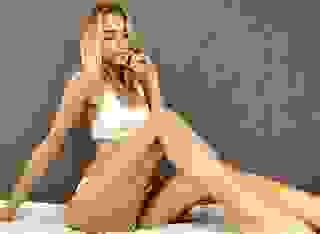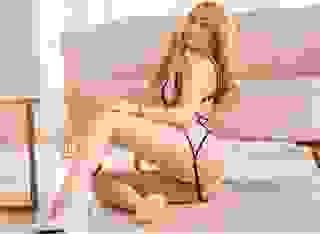Note: You can change font size, font face, and turn on dark mode by clicking the "A" icon tab in the Story Info Box.
You can temporarily switch back to a Classic Literotica® experience during our ongoing public Beta testing. Please consider leaving feedback on issues you experience or suggest improvements.
Click here"They are our allies in this war – along with a few others," Ullmann said, "It was probably said as a precaution in case any of the Italian first officers in that room were brighter than their captains but couldn't keep their mouths shut to the rest of their crews.
Myself, I welcome their help – as I would welcome any other allies in this. More boats here mean less chance that we might be attacked by a limited number of enemy submarines – statistically speaking. But –"
He held up one finger, "We are going to do our jobs. And to do that requires that we take the time to have these little thoughts – all by ourselves. They said one boat, I was thinking as many as five – at least.
I've received messages over the command network that Jürgen Von Rosensteil in U-502 is torpedoing the oil tankers coming out of Lake Maracaibo in Venezuela. Since he's still doing that, it is a safe bet that the British boat or boats are not there yet and where we are at the moment is closer to a hunting British submarine than U-502 is.
And just because we have not seen one yet, that is no reason to forget about patrol aircraft, Wilhelm. The ones they send out drop torpedoes, if you haven't had that thought as well.
We – you and me – we absolutely need for these men to be vigilant. A torpedo is a tight fit into anyone's asshole, no?
These men can't do their jobs while you're yelling at them loud enough to attract the attention of anyone with ears on that island over there. If you haven't looked at the navigator's table, it's Tobago. It's been here a long time and it's actually populated.
You scream at them and they have to stand facing you while you do it. That's not why they're here. They're here to keep you alive by looking outward. Please try to remember that they're not your crew yet, Kaleun Bucher.
They're mine.
The next time that I see you tearing my junior officers and ratings a new hole to shit from when I have set them to a task will be the last time that you speak to them at all, got it?
I've served on corvettes, the same as you. You act like you're here to be a fresh wind to them, to teach them the way that they're to act and deport themselves. That textbook stuff doesn't fly here, my friend.
Go below and do something constructive. I'll give you two choices. You can either report to the cook and peel potatoes or you can shut your mouth and put your sharp military mind to some use to figure out a way to get into the harbour on the next island without us being noticed."
He looked around to make certain that the men on the bridge were still not listening to him. He then looked Bucher right in the eye and leaned in.
"Personally, my money's on the potatoes. Get out of my sight and go below."
–––––––––––––
It was nearing dusk and they were still on the surface as U-161 motored quietly along the northern side of Trinidad much later.
Four men stood around the map table, making it more than a little tight. "So," Hans-Joachim began as he pointed, "This is where we are, and ... over here is where I want to go. Helmut and I think we have our plan made. What I want to hear is the possibility that you might have a better idea, Wilhelm.
This is not the place for any of us to heap ridicule upon each other. I want a bit of an open forum between us three. Our friend the navigator will lay out the course for whatever we decide. We're not far away now, but we need a full and proper plan."
"You have one?" Bucher asked, looking at Weisenkopf a little suspiciously, "Why does the first officer know already?"
"Before the war, "Helmut began, "Hans-Joachim and I were both in the employ of civilian shipping lines. That is how we met. In that port. It is only by luck and chance that we serve on the same boat together now."
He pointed, "You see how the harbour is laid out. If we are lucky, these slips here will have the largest ships docked at them.
"The hard part is to manage to get in, close enough to send out our fish," Ullmann said, "We don't want to be too close or too far, since there might be all kinds of craft moving around. A waste to blow up an incoming trawler and cover half of the docks with fish guts."
"Why use torpedoes at all?" Bucher asked, "Back in Lorient, they were in favour of us using our deck guns and saving the torpedoes for use at sea. I'd just wait until after dark and then go in on the surface." He shrugged, "Get a little close and shoot everything up."
"Shore defences," Weisenkopf said quietly, "It's been years since Hans –Joachim and I have been there. Back then, it was like a bowl of fruit on the kitchen table. You could take whatever you wanted.
But even this little place has to have gotten the word by now. Remember that we're not the first Germans in this corner of the world. They ran Operation Drumbeat along the American coast a few months ago. True, it wasn't here, but I'd guess that news travels fast enough.
They might have even gotten patrol boats in the meantime."
"I doubt that," Wilhelm stated, "These people have no idea about how to fight a war. It would never occur to them. We're still back at the fruit bowl days."
Ullmann stood with his eyebrows knitted together in contemplation, "I'm not sure that I'd be that quick to dismiss them, Wilhelm. They might not have a clue even now, but a lot of the goods and cargo which comes from this port is bound for Britain and America. You can't discount that somebody there may have a pair of eyes which can see past the pretty landscape.
But your idea is not without merit, since it would save us some eels to use later.
So what I think we'll do is sneak in there and wait until dark. Then we'll stick our heads up and see. If it looks to be no harder than sticking a good fat pickle with a fork to pull it out of a pickle barrel, then we'll go with the deck gun. But if we see gun batteries or patrol craft, then we'll use the steel fish instead."
He called for the officer who also was in charge of the maintaining their depth while submerged, "Rolf, come here a moment, please."
He indicated where they were going, "Something you need to know about the waters here. This whole thing, the Gulf of Paria, it's a brackish thing. If this were the wet season, you'd find depthkeeping a bit of a challenge. At that time of year, the salinity drops markedly, so you'd have to adjust your depth commands to your boys a little carefully. There's not as much salt in the water to buoy us up.
That time of year is past us, but there still might be pockets of fresher water. Bear it in mind, is what I'm telling you, or you could find yourself dropping us on the bottom before we're where I want you to do it."
"Or just as bad or even worse," Helmut nodded, "you might notice us dropping a bit and over-correct so we almost shoot up in the water.
The officer nodded and began to think it over. Bucher looked over, "Why do you want to drop to the bottom?"
"The whole harbour is not terribly deep, Wilhelm." Ullmann said as he pointed to the depth markings on the map. "There is only one deep water channel here. We'll need to follow that on our way in tomorrow morning and when we're at the right place for it, I'll set us down on the bottom. If I do that anywhere else, someone might hit us. We'll be down there for a while – all day and half the night."
"So the choice of the way in lies before us in about an hour," Ullmann smiled as he pointed to a different map, "See these islands here? This area is known as Bocas del Dragón – the mouths of the dragon. We'll be going in here. The channel is a little narrow, but it's deeper and we'll follow this trench all the way into the harbour."
––––––––––––––––––
Port of Spain
In her home that evening, Sabine Kirkwall walked into her bedroom to get ready for bed. As she took off her dress and put on her night robe, she wondered briefly where her husband was and then remembered that he often stayed late at work on some weeknights, since he said that he wanted to make certain that his despatch riders had made it back in safely and the timing of their return could be variable.
From what she knew of it, they rode around the island on motorcycles taking communications from one office to another. For about the first time, Sabine wondered what was supposed to be done if a rider didn't show up one evening. The island wasn't terribly huge, but still, there had to be a few hundred miles of roads and she knew that a lot of them were rather rustic and lonely places to experience a mechanical breakdown.
She forgot about it then, since she preferred that rather than spend too much time thinking about the fact that she'd just found out that there were only two such riders and that they were both young women.
She sat down at her vanity and began to work at removing her makeup before brushing her long hair out. It was a rather involved process, but then a woman has to do what she can to stave off the attacks of her greatest enemy – the passage of the years.
Sabine was barely thirty-two and she was still a legendary beauty known all over the island and a great deal of the Caribbean for her looks and she guessed that she was still holding her own as well or better than any woman had the right to.
Born into perhaps the wealthiest family on the island, she was the only daughter of the present governor. Indeed, if she'd been asked by any of her well-to-do friends in a private conversation about her growing up spoiled, Sabine would have laughed and nodded, saying that SOMEbody had to deserve the good things in a life of privilege.
But that didn't mean that she was stupid or uncaring about the lot of the less fortunate on the island as it pertained to her position near the top. She understood that her good life had been built upon the backs of the lower classes and she knew that it meant that they had to be at least a little looked-after.
Her father had taught her that; pointing back to the outlawing of slavery and then the indentureship which had been offered to the imported Indian and Chinese laborers – wages of twenty-five cents a day for first five and then ten years. It had been a profitable time for the planters but it had certainly set the stage for things long after the practise of indenture had been abandoned.
He'd also taught his daughter that there was only so much that could be gotten away with as he'd taught her about the Water Riots, an ugly day when the rates for fresh water had been changed in all manner of ways – which still amounted to a hefty increase after all of the tortuous calculations were complete.
A crowd had gathered in front of the Red House in March 1903, and it had gotten ugly. Windows were smashed and when a woman had been arrested, the crowds rioted.
The building caught fire, the Riot Act was read and sixteen people were killed and forty-two injured when the police fired upon the crowd. The first Red House burned to the ground. The present one was built in 1907 but the message had been clear – there was only so much blood to be gotten from stones.
Sabine wiped the last of the cold cream from her face and after wiping her hands, she reached for her hairbrush to begin the nightly ritual, but as she lifted it, a piece of paper fell free and she set the brush down again to take up the paper and unfold it.
What she read had been written in a clear and masculine hand and the text in that message about young women being used in a public office late at night by a certain civil servant's abuse of his power almost caused Sabine Kirkwall to scream in rage. How convenient, the writer mused, to create jobs for young women in the service of Trinidad so that the civil servant could have his way by hanging those jobs over their heads and insisting that they come to him each evening at the end of their workdays when there was no one present there but him in most cases.
There were no others in her room with her that evening, but if there had been any there who knew of it, they might have had to hold back a knowing smirk. Robert Kirkwall's proclivities were all but common knowledge in Port of Spain in those days and Sabine could only pretend to be deaf and blind for so long.
She was almost beside herself for any of a few reasons, and the rioting of the public over a perceived injustice was only one of them.
Trinidad had been 'told' to put money to it's own defence with little help to be forthcoming from the Crown, since they had their hands full at home. The funds for the coastal artillery and the building of emplacements had to come from somewhere – even if the guns had been sold to them at deep discounts.
That 'somewhere' had been out of the public purse and that meant that some awfully unpopular cuts to services had been made. From Sabine's point of view, the tinder was probably dry enough for a fire as it was.
And this hadn't been the first time that her Robert had strayed, though he'd seemed regretful enough once she'd reminded him that his job came as a gift from his father-in-law so that his daughter could say that her husband had a rather important job.
She knew of women who'd had to stand this sort of thing for years from their husbands. But Sabine wasn't the sort of woman who was prepared to put up with that sort of foolishness. She was too strong to take that indignity lying down.
She knew of more than a few women in her circle and others who lived alone, being the dutiful mothers to their brood after tossing out their worthless husbands. They seemed quite happy to live sexlessly in public – while maintaining a rather active love life behind the scenes. She thought of any likely male candidates who were already in her employ and decided against them. Perhaps it was time for a new manservant, she smiled to herself.
But that would have to wait for a time, she nodded to herself. First, she had to clear a path to her garden, and to do that, one had to first remove the ... deadwood.
This hadn't been the first time, Sabine said to herself, but it was about to become the very last – at least by that particular civil servant. She'd been quite clear that she was only prepared to give one warning and it had long ago been given.
–––––––––––––-
18 February, 1942
They hung around for more than half the night and then just eased into the channel. Before they left it, they submerged and ran in at periscope depth, aiming to reach the harbour itself by about 9:00 AM. The morning rush of fishing boats would be over then and it was a period of the day when both Ullmann and Weisenkopf had noticed a bit of a lull most days when they'd been there before.
They ran in submerged, but a little off the channel, the radioman sitting with his headphones mashed against his head tightly to listen for the sounds of nearby ships and fishing boats. At 7AM or so, they hove to and just waited for the rest of the morning exodus to pass overhead. What Ullmann was worried about more than anything was the passage of a trawler who dragged his nets a little close to home, but it didn't happen.
A little after 8:30, Ullmann ordered them to creep forward and by a little after 9:00, they were just outside of the harbour and still in the channel at periscope depth. He looked around at the faces in the control room and nodded.
There had indeed been a few changes in the time that Ullmann and Weisenkopf had been to Port of Spain and one of them was an underwater cable placed along the bottom to sense for magnetic anomalies – such as the passage of a sizable piece of ferrous metal overhead.
Like a submarine, as a very specific example.
Their passage was noted at 9:30 and several sets of binoculars were trained on the entrance to the harbour. But the harbour was a wide thing and the cable hadn't been calibrated well, so after a few minutes, it was decided by Robert Kirkwall as he took the call in his office, that it had to have been the passage of the harbour patrol launch – since that was what he saw out there then.
U-161 forged on silently, her radioman listening keenly to the sounds which came to his ears from the hydrophone array. A few minutes later, Ullmann ordered all stop and then he raised the periscope for only a quick look around. No one had been looking at that time, and so no one saw the thin periscope mast which projected just out of the water and was quickly withdrawn.
Ullmann smiled, "Ease us down to the bottom. It's all soft mud here." He motioned Bucher to the navigator's table and pointed to several points around the ring of the harbour on the map. "Shore Batteries. No deck gun work tonight, Wilhelm."
U-161 slowly settled bow-first until she stopped, the aft end settling only a moment after. Hans-Joachim ordered his crew to sleep if they could and he had his engineering officer shut off anything which was not needed, such as most of the lighting. She slept soundly on the bottom of the harbour with her ventilation fans running slowly.
–––––––––––––-
19 February, 1942 – Port of Spain government offices
They met just after midnight and walked up the back stairs of the Red House, the governor and his daughter along with the Chief Constable and two of his men. At every landing, the halls and offices looked dim with only one or two lamps on. At last, they came to the outer office door of Robert Kirkwall and that presented them with a bit of a problem since it was locked. But the Chief Constable had the presence of mind to have foreseen just this sort of difficulty and he turned to the elderly custodian who was only now cresting the top of the stairs.
He nodded and began to sort through his large ring of keys.
–––––––––––––––––––-
19 February 1942 Port of Spain Harbour
U-161's periscope slipped above the gentle waves in the harbour. By that time, there was no one around to see it's slow and cautious rise – certainly no one near enough to notice it, in any event.
"All quiet," Ullmann said softly as he walked the periscope around so that he could see all around them for a long moment. He found what he was looking for a moment later – a pair of large freighters tied up at the wharf a little more than a half a kilometer away.
"All stop.
Surface the boat slowly. I want the Master Sight up on the bridge. I'll run this from there with the XO."
He climbed the conning tower ladder quickly and opened the hatch, stepping up to the skirted rail for a quick look around with his binoculars. He saw that nothing was going on in the port at all and opened the voice pipe, already beginning to set this up.
A moment later, he was giving his quietly-spoken commands and hearing the acknowledgement of each one by the relevant section head, from the Executive Officer to the Diving Officer to the Petty Officer who stood at the arming console ready to input the running settings into the torpedoes.
"Tubes 1 and 2; prepare for surface firing," he said quietly. "Range: 600 meters.
Depth of run: one meter."
The sub was still coasting slowly and he noticed the buoy marking the center of the channel. Best to avoid getting hung up in the chain by his bow planes.
"Helm, come to port 30 degrees."
The last-minute correction did the trick and U-161 was facing a little away just as it stopped, so he thought about his correction and how it affected other things just as Helmut came onto the bridge to operate the Master Sight so as to give Hans-Joachim a better view of the big picture. Ullmann nodded as Weisenkopf began to look through the sight.
"New bow angle on the torpedoes." Weisenkopf said, "85 degrees."
It took a second, but the Petty Officer at the weapons panel acknowledged when he had the light indicating that the bow angle was now correct.
"All Set."
Ullmann nodded, though no one saw it. "Tube 1; deflection shot, 17 degrees port of it's bow angle. Tube 2; straight out."








